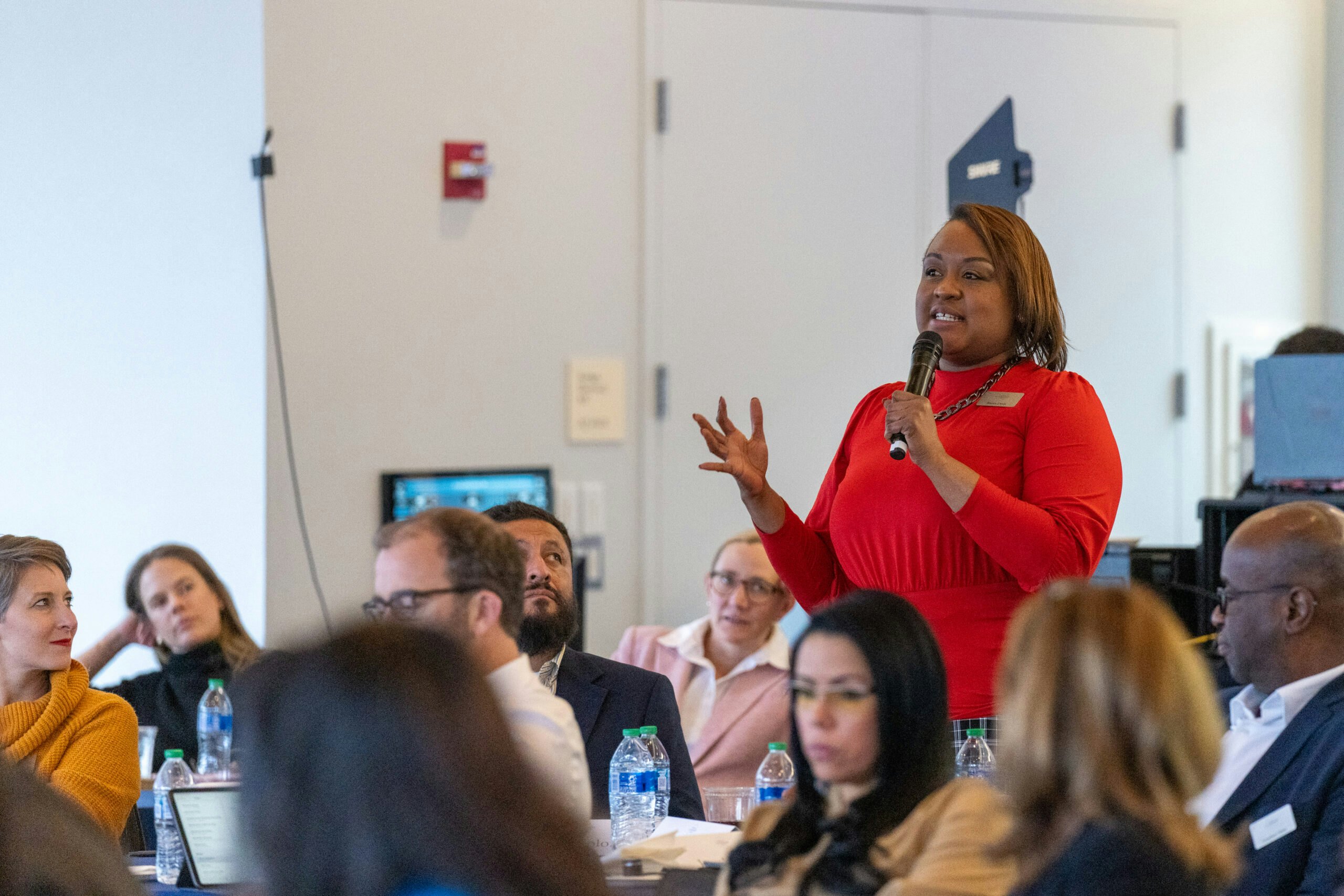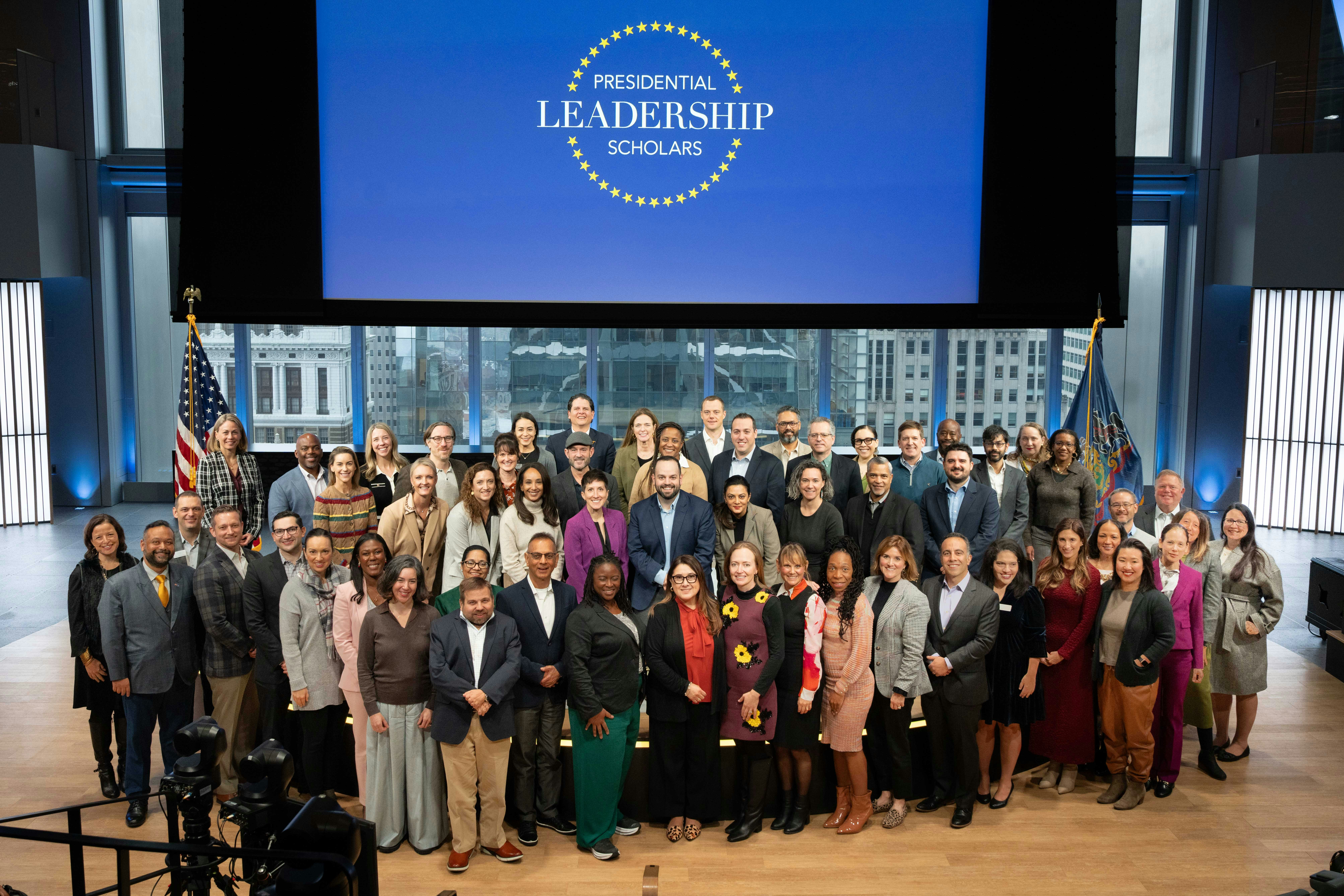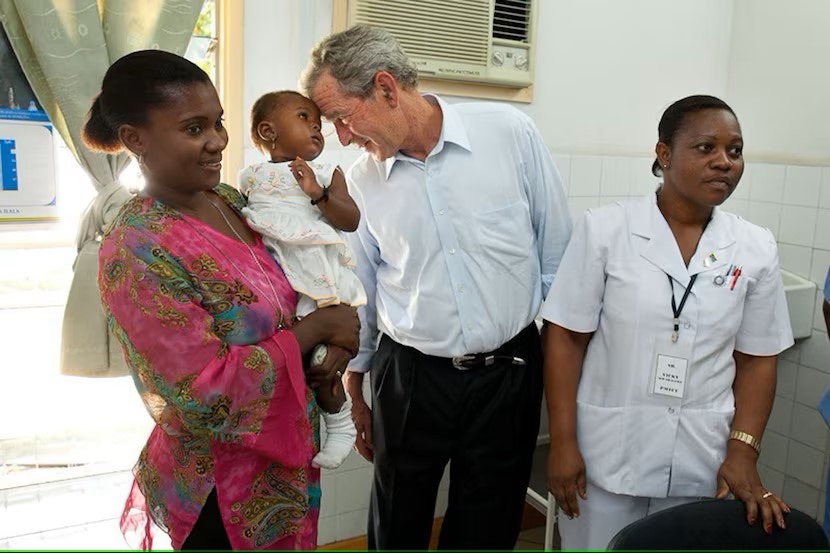This week’s Global Women’s Network summit showcases effective solutions that are improving the lives of women and girls globally.Diana...
This week’s Global Women’s Network summit showcases effective solutions that are improving the lives of women and girls globally.
Diana Mao is the President and Co-founder of Nomi Network, a nonprofit organization dedicated to economically and socially empowering survivors of human trafficking. She will participate in Tuesday’s panel discussion on combatting exploitation and discrimination of women and girls.
Diana participated in this Bush Institute Q&A to talk more about the work of the Nomi Network, the summit’s discussion, and her experience as a Presidential Leadership Scholar.
Tell us more about the Nomi Network. How did the project develop? What impact has it had?
It is hard to believe that there are 32 million slaves in the world today. There are many reasons why this $99 billion industry exists. Corruption, lack of laws and poverty are a few of the reasons. But the statistics were truly meaningless to me, until had gone to Cambodia one summer to do some research on microfinance and became an unintentional witness to the risks of sex trafficking.
The research brought me to some of the poorest and most remote villages in Cambodia. It was there that I met a single father with seven children. He offered his youngest daughter, no more than the age of 7, to one of my male colleagues. As I looked into the father’s eyes, I could tell that he was desperate and did not really want to give her up. In that instant, the risks to children of being trafficked became perfectly clear to me. Among the poor in rural Cambodia, children are sold to brothels or to sweatshops.
This encounter left a lasting impression on me. It saw clearly that poverty is a breeding ground for traffickers to prey on young girls. After coming back to the Unites States, I was determined to do something, and in 2009 I co-founded Nomi Network, named after an 8 year-old survivor of sex trafficking, that creates economic opportunities for survivors and women at risk. We provide entrepreneurship, leadership and technical training to women in Cambodia and India, linking their products to the global market, while working with retailers and consumers who seek to purchase ethically made products.
In 2014, we trained over 100 women and created over 300 jobs in some of the most poor and remote parts of the world and where slavery is also prevalent. Nomi Network has been effective at increasing the wages of our clients by at least 200%. Our clients are using their income to purchase needed household items and to send their daughters to school.
In some cases women are progressing to advanced career paths, including becoming entrepreneurs in their villages. This year, our women in Bihar are opening the first woman owned boutique and tailor shop.
In addition to helping our clients achieve financial independence, one of our goals is to help strengthen the communities they live in. We have found that in our social and community work, to help resolve conflicts, we are most successful if we involve as many stakeholders and potential beneficiaries as possible. This approach also reduces dependency on a single person. Initially, if there was a conflict in the community, a senior staff member would need to get involved in order to get the problem resolved. However, Nomi has developed a cadre of women in the community who help each other in need. Only if a situation is out of control will they call Nomi management.
Women are now standing up to their former abusers and reaching out to help other women in the community who are being abused.
Step by step, our clients are becoming increasingly empowered. The women sometimes need to go to government offices for various services, sometimes for benefits to which they are entitled. At the beginning, our clients were too inhibited to visit a government office. So Nomi arranged for women to visit government offices in pairs, and initially someone from the Nomi staff went with them. And now they are very confident visiting government offices by themselves.
What is the role of innovation and technology in your work?
Nomi’s model focuses on prevention and empowerment for survivors of trafficking and women at-risk by driving the demand for products made by survivors while ensuring these women learn design, quality control, and product development through on-the-job training. Nomi helps distribute these products through mainstream retail channels to create a fair supply chain and re-invests 100% of the profits from product sales back to programs.
Our network bridges the gap between the vulnerable workforce and the marketplace to generate awareness and demand for survivor-made products. Moreover, Nomi’s domestic efforts to increase retail channels for these products ultimately increases the amount of fair producers in the marketplace, thereby allowing greater access and opportunities to leverage consumers’ purchasing power to sustain the livelihood options for survivors. Nomi not only is creating a global transparent and fair supply chain, but also serves as a platform to convene all the stakeholders – mainly large domestic retailers and distributors– to create positive impact in their supply chain. Nomi bridges the gap at each level of the supply chain.
Consumers drive demand for products that are made responsibly and more than ever shoppers who are drawn to products that create a global effect. These consumers will gravitate towards products that are environmentally friendly, give back to communities like the one-for-one model, and fair-trade slave-free certified. They are aware of the problem of sweatshops and slavery in the supply chain and consciously want to make a difference with their purchase. The cause consumer is willing to pay more to make that impact and will seek out brands that relate to specific causes they care about.
It is clear that this type of cause consumer is on the rise as we see media shifting to cover stories such as the Norwegian “Sweatshop” reality show. In this miniseries, three young Norwegians who are immersed in the fashion world, are taken to a sweatshop in Cambodia to see where their clothes really come from. They then experience the harsh reality of the workers who are producing their fashions and these young people are changed. More and more millennials are becoming aware of the problem of human trafficking and how it affects the products they buy.
When someone hears about Nomi Network for the first time, they are compelled to buy a product because the story of our women affects them on a deeper level. Brands are beginning to partner with Nomi at the product development stage so they can work directly with the women we have trained and be partners in their financial independence. Our customers want to provide jobs for survivors once we invite them into the Nomi story. Dr. Santhosh Paulus, for example, heard our story and biked across the country to raise awareness and funds for Nomi. Walmart.com and Wayfair heard our story and currently features our products on their website. Our program model is innovative as we lift up women in the poorest and most remote parts of the world while linking them to the global supply chain. Nomi tells their story through social media, our website – www.nominetwork.org, our brand Buy Her Bag Not Her Body, and through our retail partners. Our supporters see and experience the transparency in our supply chain.
Why is addressing human trafficking important to the Global Women’s Network conversation?
Human trafficking is important in this conversation because we are the solution. Particularly women — we are the ones on the frontlines combating exploitation, and we are also the biggest consumers in the world. I was recently at a Delta Airlines Anti-Human Trafficking Conference where the speaker made a statement, “We are all slave owners.” As jarring as that sounds, there is truth behind it. Labor trafficking is often ignored, but at least 68% of the raw materials used in our apparel, coffee, and chocolate are manufactured or produced by forced or child labor. Businesses are not doing much to address these issues. It only gets spotlighted when an extreme tragedy occurs such as the garment factory collapse in Bangladesh.
As global citizens, we can do more. In Cambodia and India, I have seen what a difference a job makes–financial independence and money in a savings account that help to withstand social-economic shocks. Women, who were born into brothels and are members of the lowest caste now have access to basic necessities, education and healthcare. Her new way of living creates a ripple effect in her family and community. We have shown that we can support and fuel this ecosystem, as well as purchase the products that do not perpetuate systems of exploitation.
As a 2015 Presidential Leadership Scholar, you committed to focus on decreasing the child labor footprint of brands through your Personal Leadership Project. Tell us more about that project.
For the past 7 years, I have been dedicating my time to creating economic opportunities for vulnerable women. My Personal Leadership Project focuses on decreasing the forced and child labor footprint of brands. I have engaged brands and thought leaders about this issue. I have co-hosted working group meetings with brands like Patagonia to exchange ideas on their ethical sourcing practices and further engage the overall retail industry. In addition, I have done presentations to the management teams of several brands on how to create a more responsible supply chains.
The Presidential Leadership Scholar Program has been instrumental in enlarging my network, my tool belt, and leadership capacity, to help build ethical supply chains that empower women and girls so they can have a change to live and thrive.
With all of the challenges that women and girls are facing around the world, what gives you hope?
I have a confession to make; there was a moment this time last year when I lost hope in the fight against human trafficking. On a Sunday morning in September last year, I received horrible news that Manisha, one of our trainee’s daughters was found dead in a pond near their hut. Two weeks prior, she had been abducted from their hut and rape was suspected.
She was only 10 years old. Her death took a toll on my heart and kept me up at night wondering what else could have been done. Her mother was the most promising trainee in our program and was recently promoted to become a trainer. With the death of her daughter, she took a leave of absence but returned to Nomi 3 months later.
As 2014 came to an end, I quickly realized it doesn’t matter if I have hope or not. The fact is there are people on the frontlines stopping the cycles of exploitation, as well as visionary leaders in the anti-trafficking community leading the charge. These people as well as my renewed faith in God give me hope that the exploitation of women and girls around the world will end. This past March, I had the opportunity to visit Nomi herself at the shelter in Cambodia where we first met her in 2008. She is a teenager now but with the mental capacity of a child. While the other girls were playing with their toys, she ran to me with a sweet embrace and noticed right away the scabs on my hands and feet from having fallen off a moped. She wanted to run back to her room to get me a Band-Aid for me, but I insisted that I was fine. Here was a child who has been through unspeakable brutal things and treated like an animal; yet, she had such a propensity to love and care for another human being. At that moment I knew that no matter what challenges we face as an organization, there is always HOPE.
Our vision is to create 100,000 jobs in the next 7 years, that is at least 400,000 children supported and over 10,000 villages reached. I can imagine a world without slavery, where brands will have access to supply chains that empower rather than exploit women, where consumers can buy products with a clean conscience, and where communities with girls like Manisha can live and thrive.





























